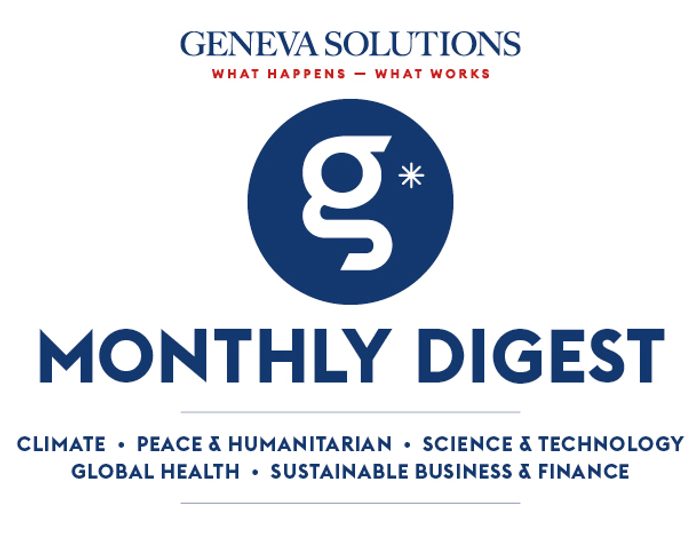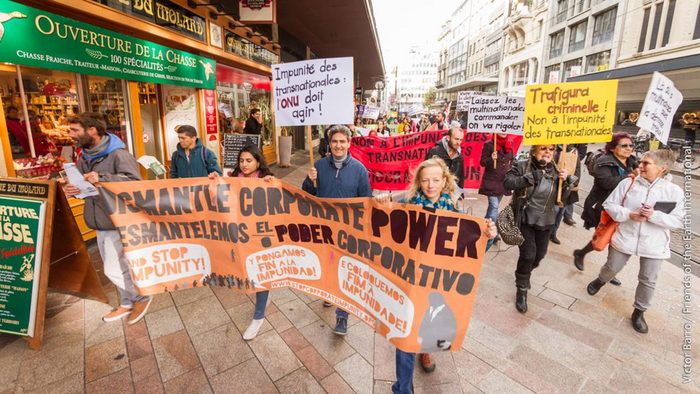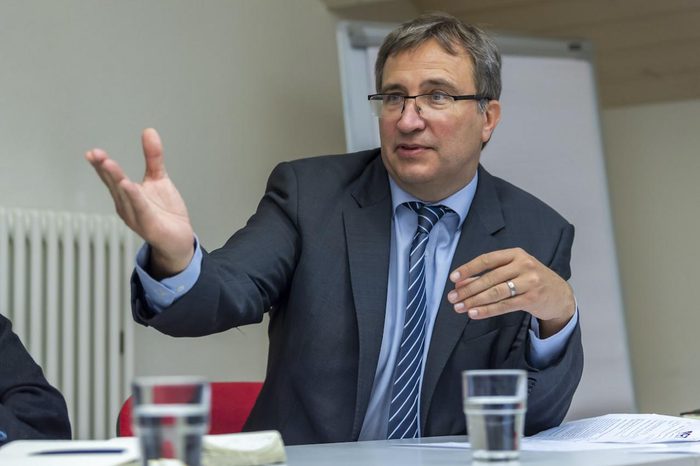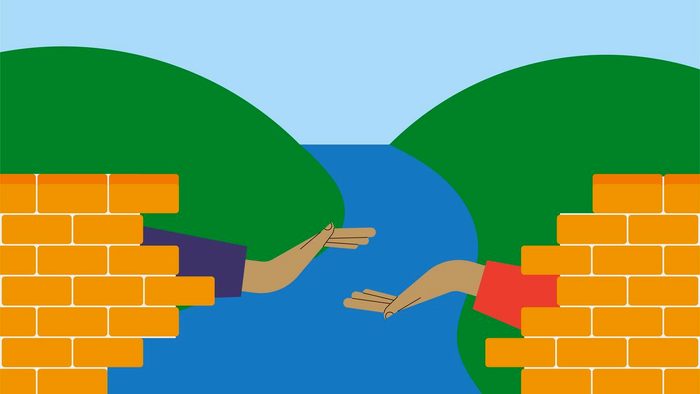 |
Hi, this is Michelle, with your October highlights from International Geneva in what has been a month packed with environmental wins. After years of campaigning, the Human Rights Council agreed to appoint a climate expert and recognised the right to a healthy environment. The Aarhus Convention sanctioned Belarus for cracking down on environmentalists, and sharing climate data is now mandatory for countries following a landmark decision by the WMO. Plus, states are finally entering text-based discussions for a UN treaty to regulate big business.
It’s been a less positive month in the humanitarian world. The latest round of peace talks on Syria ended in disappointment yet again, and the UN sounded the alarm on possible war crimes committed in Libya. Also, Covid-19 has led to more cases of torture, says OMCT boss.
Geneva also made strides in science and tech. The University of Geneva is venturing computational diplomacy – an up-and-coming field that could shape tomorrow’s decision-making. Plus, GESDA launched the first global scientific radar, and a new Geneva-born technology will bring clean water to rural homes. |

|
|
Happening this week in international Geneva
|
|

Activists demonstrate in Geneva during UN discussions for a binding treaty on human rights abuses by corporations. (Credit: Victor Barro/Friends of the Earth International)
|
|
👔 Regulating big business.
Countries are meeting from Monday through Friday this week at Palais des Nations to negotiate a new global agreement to hold transnational corporations accountable for human rights abuses. The US, which had boycotted the negotiations until now, is said to be joining the meetings. The agreement would regulate the activities of companies when operating outside their home country and hold them accountable when they commit violations.
Michelle Langrand (EN)
|
|
😷 Covid vaccine inequality is stalling jobs recovery, warns ILO.
In its latest report, the International Labour Organization (ILO) sharply revised down its labour market outlook and said it now expects working hours equal to around 125 million full-time jobs to be lost this year due to the pandemic. The UN agency's director general Guy Ryder said the unequal vaccine roll-out and disparities in fiscal stimulus packages were further deepening the divide between developed and developing countries, resulting in a two-speed recovery.
Kasmira Jefford (EN)
|
|
Here's what else happened this month
|

Gerald Staberock, secretary general of the World Organisation Against Torture. (Photo: OMCT)
|
|
|
Water exploration series continued
|
|

Rocio Egio for Geneva Solutions
|
|
🚰 Geneva technology brings clean water to remote areas.
Deep in the Amazonian forest, a seven hour drive away from the city of Tefe in Northern Brazil, the small community of Deus é Pai struggles to get access to clean water. Tabita, a microscopist in charge of monitoring malaria at the local health centre and a midwife for the region, has made improving water security her mission. She’s one of the community leaders testing a Geneva-born technology that produces chlorine from water and salt.
Geneva Solutions (EN)
|
|
|
GS news is a new media project covering the world of international cooperation and development. Don’t hesitate to forward our newsletter!
Have a good day!
|

|
|
Avenue du Bouchet 2
1209 Genève
Suisse
|
|
|
|










